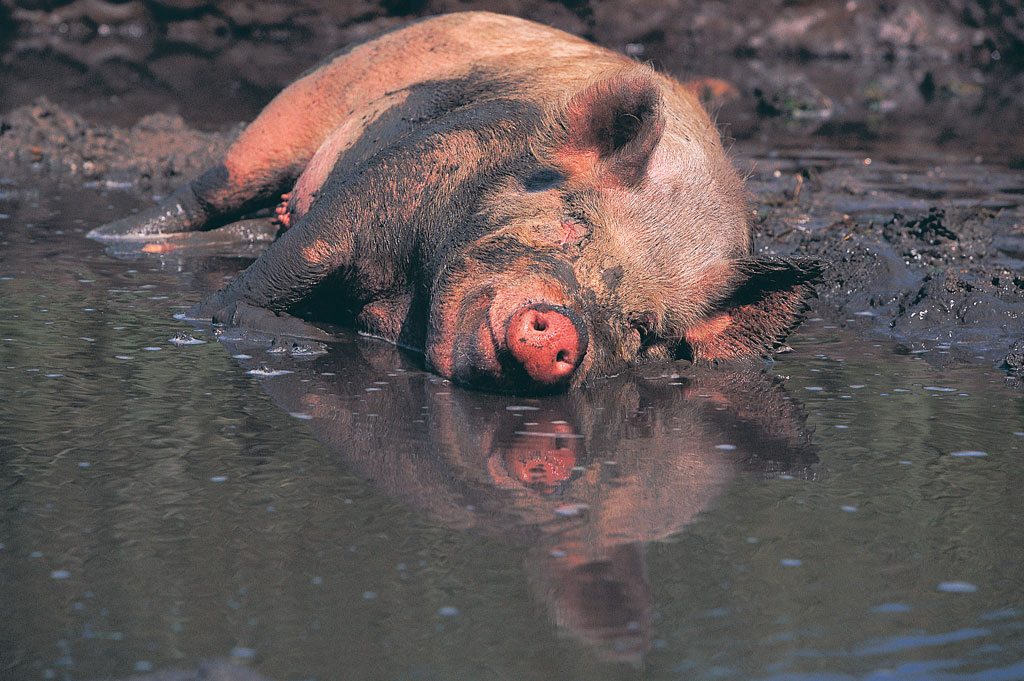Are You a Wallower?

Here is an interesting comment I received via CVM about wallowing! CVM = Christian Vision for Men
It is really easy to wallow, and I don’t just mean in a nice, deep, hot bath with a Lush bath bomb (other brands are available, but Lush are definitely best), a decent pint and a book. I mean in anything.
I wonder what immediately sprang to mind when you read the word ‘wallow’? For most people I think it is something like the phrase, ‘wallowing in sadness/misery/self-pity’. I love it as a word. It’s one of those words which looks weirder the more you read it and sounds weirder the more you say it. Wallow.
Wallow.
But what does it really mean? To wallow is to roll about or lie in mud or water, mainly to keep cool or avoid biting insects. It’s mainly done by big animals like buffalo. So when someone wallows in self-pity, what we’re saying is that they are metaphorically rolling around in it. I have a tendency to wallow. It’s easy, almost no matter what I’m wallowing in. I do, however, have a tendency to wallow in things like failure or self-pity, which isn’t quite as nice as wallowing in a bath. It is about as easy as wallowing in a bath though. When we wallow we are after protection. We don’t want to be vulnerable. In the same way that the buffalo are seeking protection from the heat and from the irritation offered by the bugs that bite, when I wallow in my self-pity I am not doing so in order to be vulnerable, I’m doing it so I don’t have to go anywhere. As someone who still suffers from depression relapses and wrestles with anxiety, wallowing is what I am good at.
I am currently leading a small group of people through a course called ‘Pilgrim’. It’s an introduction to Christianity course put out by the Church of England, and is rife with the language of pilgrimage and journey. Wallowing is comfortable precisely because it means we don’t have to go anywhere. Wallowing offers the same feeling as that when you read those first few lines of Psalm 23 – ‘The Lord is my shepherd, I lack nothing. He makes me lie down in green pastures, he leads me beside quiet waters, he refreshes my soul.’ – that desire to do exactly what the Psalmist describes. To stop. To roll around.
The difference is important. When we wallow we cover ourselves with that emotion, experience or person. It gives us the protection to continue on the journey, but because we’re the ones in control of the wallowing we can stay there as long as we jolly well like.
The pilgrim journey of the Christian faith doesn’t offer such luxuries. We are called to follow Jesus, and that means relinquishing control. It means allowing Jesus to lead. Jesus, the God-man with infinite patience and infinite love who offers his protection to each of us. We no longer need to wallow, but it doesn’t mean that we no longer want to wallow. That’s where Jesus’ patience comes in, but just because Jesus is patient with us doesn’t mean we give up. Each of us are called to get up out of the mud pit we are wallowing in, whether we’re there because of our own choosing or not, and follow Jesus not through our own strength, but through his. This process is one which takes a life-time and we need to ensure we are also patient with each other, encouraging one another on the journey not out of frustration but out of love.
Jesus is patient with our wallowing in whatever it is we want to cover ourselves with. He is in there is with us, but that doesn’t mean it is who we are called to be. We are children of God. I am a child of God. You are a child of God, and it is that identity which truly defines you. I didn’t want to hear that when I was at my lowest. But it is the truth, and I’ve come to know that. Let us continue to draw ourselves in line with that identity, banding together in accountability, prayer and support in order that we may each journey away from wallowing in the mud pits we think define, us towards our identities as children of God, being led beside still waters. But never forget where you have journeyed from, because your journey may just help someone else.


